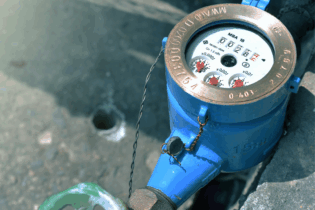Service charges from electricity, water, and sanitation are the main source of revenue for municipalities. When not managed properly, this can result in a downward spiral of reduced income and impaired service delivery.
Leading consulting engineering and infrastructure advisory firm Zutari has successfully assisted a major metropolitan municipality to recover hundreds of millions of rands in previously unpaid water and electricity bills over the past few years. It now aims to roll out this Revenue from Service Charges Management (RSCM) solution to the other major metros in South Africa, as well as municipalities struggling to manage their revenue from service charges, reveals Leon Prinsloo, Associate, Asset Management. Zutari has produced a case study entitled ‘Optimal Revenue From Service Charges’ to illustrate the full benefits of its RSCM solution, which is based on a Water and Electricity Meter Management Consultant (WMMC) model. Its key deliverables for the metro were meter installation and repair management (work management), meter reading management, credit control management, contractor management, materials management, and ad hoc services such as revenue recovery and enhancement. The ultimate aim is to ensure a high as a possible percentage of what is known as ‘readings onto bill’ – that is, the number of consumers receiving a bill detailing actual consumption and related charges, as opposed to being charged interims or estimates. Zutari assisted the applicable metro to achieve a ‘readings onto bill’ percentage of over 90%. For the specific metro, a revenue recovery project for electricity meters was undertaken, involving investigating electricity consumption ‘gaps’, the reasons for these ‘gaps’, and then producing a billing recovery report for billing to the consumer. The end result has been a significant and sustainable increase in electricity revenue recovery for the metro. For the specific metro in question, a revenue enhancement project for water meters was also undertaken, involving investigating who were the topwater consumers, identifying all feeds, whether metered or not, and then combining all of these feeds into a single metered feed. This has resulted in a significant increase in billable water consumption and subsequent revenue. “Proper management of processes from procurement right through to lifecycle maintenance and end of useful life replacement plays an integral part of optimising revenue from service charges,” highlights Prinsloo. The crux is that managing data of hundreds of thousands of meters requires a data management system that can handle large volumes of data. Here Zutari’s in-house developed SQL-based Data Management System was key to achieving the successes outlined in the case study. The system makes use of the unique 27-digit surveyor general land parcel code as the primary key to link any data to this land parcel or stand.The data ranges from account holder and meter information to the history of work done at the stand, history of meter readings, and credit control activities that took place at the stand. This provides for a complete record of all data applicable to a specific stand.
An immediate advantage is that reports can be provided in formats that can be tailored to a client’s specific needs. An important report from a municipality perspective, for example, is the annual Service Delivery and Budget Implementation Plan (SDBIP) report. Municipalities are audited on these reports, and Zutari successfully assisted the metro referenced in the case study in compiling reports conforming to audit requirements. In order to provide accurate reports and data integrity within the client’s systems, a process of data verification also takes place. This ensures that meter information captured into the client’s system is accurate. Meter information typically consists of the meter number, meter size, the dials of the meter, date of installation, and the GPS coordinates of the installation. “The RSCM model also positively impacts non-technical losses for electricity, as well as Non-Revenue Water (NRW) management with the replacement of faulty meters not recording consumption being one example. The solution can either be used in its entirety for maximum impact, or in part. Revenue recovery can be seen as an example of a partial solution,” concludes Prinsloo. Major benefits of the Revenue from Service Charges Management (RSCM) solution from Zutari for municipalities ► Optimised revenue from service charges through:- Improved percentage of readings onto bill
- Revenue recovery initiatives (potential of high return on investment)
- Revenue enhancement initiatives (potential of high return on investment)






